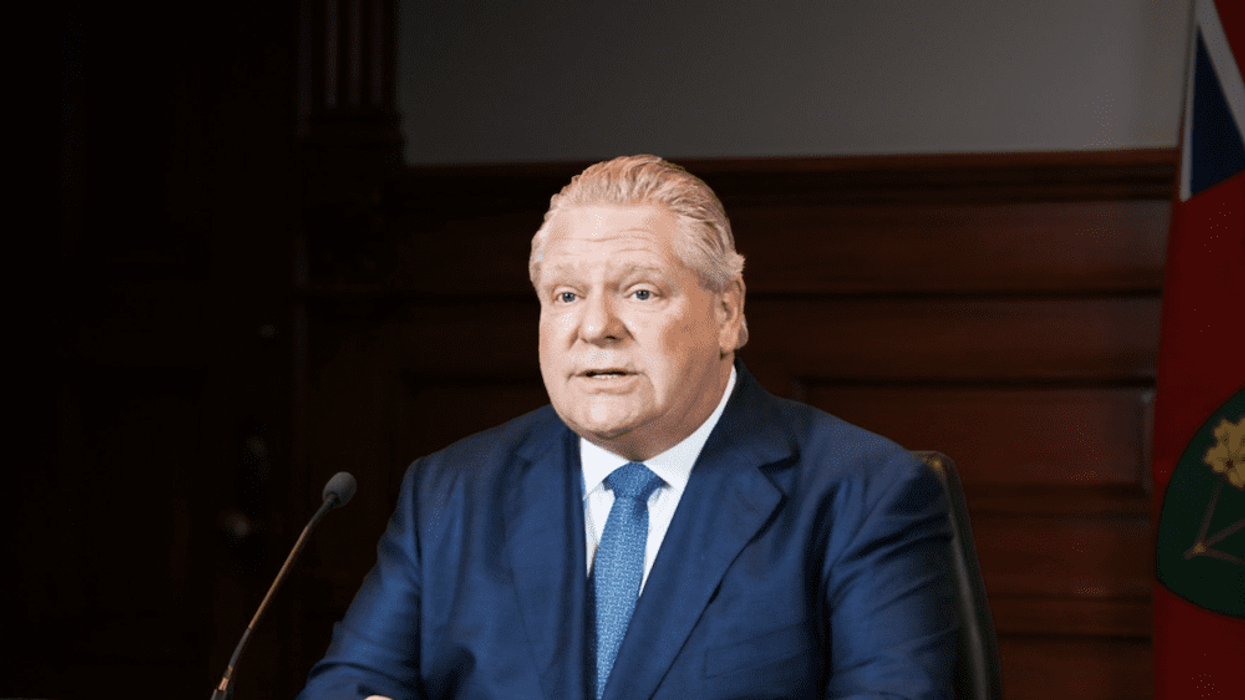As blowback for the Greenbelt land swap rages on, Premier Doug Ford announced a new $1.2B incentive program to get municipalities to build more homes.
Ford announced the new program, dubbed the Building Faster Fund, during his speech at the Association of Municipalities Conference in London on Monday, noting that it will "reward municipalities for reaching annual housing targets."
"These targets will be ambitious, but realistic," Ford said.
The Ontario Government has repeatedly asserted its intention to ensure the construction of 1.5 million new homes in the province by 2031, and has already doled out targets to municipalities. But with limited construction capacity, the ability to actually reach 1.5 million homes has been put into question.
On Monday, Ford said that, in the first year of the program, they are looking to achieve at least 110,000 new housing starts across the province. This is notably lower than the more than 150,000 housing starts experts estimate will be needed to reach the province's goal.
Municipalities that reach 80% of their respective part of each year's target will become eligible for funding "based on their share of the overall goal."
"Think of it like this: if you get an 'A,' you become eligible for funding. If you do worse than an 'A,' you don't," Ford said.
Municipalities that exceed their target will receive a bonus. Ford pointed to Pickering, which is currently on track to exceed its provincial targets by more than 150%. If that holds true, the city will be eligible for over $5M in new funding, Ford said.
Vaughan, a larger city with a higher housing target, is on track to reach 140% of their goal. If they do, Ford says they will be eligible for $17M in new funding.
Payments will start in 2024 and "can be put towards housing-enabling infrastructure like site servicing, roads, and public utilities, and other shovel-ready projects that support the goal of building homes and community building."
Small, rural municipalities that weren't given provincial housing targets won't be left out of the new initiative, with 10% of program dollars — $120M — being set aside to help support housing in those communities.
More Strong Mayors
In the same speech, Ford also announced an extension of the controversial strong mayor powers to another 21 municipalities "that commit to provincial housing targets."
"Specifically, municipalities projected to have populations of over 50,000 people by 2031 will become eligible for strong mayor powers," Ford said.
Municipalities that will be a part of this extension include Halton Hill, Sudbury, Aurora, Peterborough, Kawartha Lakes, Bradford-West Gwillimbury, and Belleville.
“These municipalities will no longer be required to provide a council-endorsed housing pledge and that’s because we want more municipalities to be eligible for the Building Faster funds sooner,” Ford said.
A Positive Housing Spin
The Ford government has struggled to rein in blowback from the scathing Auditor General report released earlier this month, detailing a biased process for selecting Greenbelt lands to be removed that ultimately favoured certain developers and land owners.
Auditor General Bonnie Lysyk revealed that both Ford and his Housing Minister, Steve Clark, were said to have had no involvement in or knowledge of the selection process, with the finger being pointed at Clark's Chief of Staff, Ryan Amato.
Both Amato and Clark have kept their jobs, despite calls to the contrary, and the Ford government has refused requests to re-evaluate their land selections.
Monday's announcement of the Building Faster Fund not only offers the Tories a chance for some positive housing news, but it could bring some sense of relief to municipalities worried about having enough funding to build infrastructure to support their new homes.
Late last year, the Ford government passed Bill 23, the More Homes Built Faster Act, which slashed development charges collected by cities.
Mayors of Ontario's largest cities have urged the Province to reconsider the cuts, with many saying they will have to raise property taxes in order to fund necessary infrastructure, like new roads and sewer systems.





















